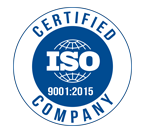Reagents, P, bioWORLD, 1 L
-
bioPLUS™ Phosphate Buffer
bioWORLDPhosphate buffer contains a mixture of monobasic dihydrogen sodium phosphate and a dibasic monohydrogen sodium phosphate. Phosphates have a high buffering capacity and are soluble in water. They inhibit many enzymatic reactions and procedures of molecular cloning. Phosphates also precipitate in…
-
Phosphate Buffered Saline (PBS)
bioWORLD10X PBS solution/li> Sterile Ultra Pure Grade pH (25°C): 7.4 +/- 0.1 DNase Activity: None
-
PBS Buffer 1X, pH 7.2
bioWORLDPBS (Phosphate Buffered Saline) has a concentration of 1X and can be sterilized by autoclaving. It contains 726.0 mg/L NaH2PO4, 9, 000.0 mg/L NaCl, 210.0 mg/L KH2PO4 and has a pH of 7.2. PBS is a water-based salt solution that helps maintain a constant pH. It is isotonic and non-toxic to most cells…
-
PBS 10X with 0.5% Tween 20, pH 7.5
bioWORLDPBST is commonly used as a wash solution for Western blot membranes and microtiter plate wells in ELISA assays. The Phosphate Buffered Saline with Tween 20 is an optimal formulation of pH stabilizers, salts and detergents designed to effectively remove excess material from membranes and microtiter…
-
Phosphate Buffered Saline
bioWORLDUltra Pure Grade pH at 25°CC: 7.4+/- 0.1 DNase Activity: None Sterility: Passes Storage: RT Hazard: Irritant
-
PBS with Calcium and Magnesium
bioWORLDWashing buffer for peroxidase conjugates in Western Blotting. 1X PBS with Ca++ and Mg++ pH 7.4 0.1 (25°C)
-
Potassium Phosphate Buffer
bioWORLDPotassium phosphate buffer has a concentration of 0.1M and a pH of 7.2. It contains 28.3% of KH2PO4 (monobasic) and 71.7% of K2HPO4 (dibasic). Phosphates have a high buffering capacity and are soluble in water. They inhibit many enzymatic reactions and procedures of molecular cloning. Phosphates…
-
Propylene Glycol
bioWORLDPropylene Glycol is a common solvent used in biochemistry for its low freezing point and non-toxicity. When used in PCR, Propylene Glycol preserves nucleic acids for better results. It has been observed to greatly increase the stability of DNA for long-term preservation. Molecular Biology Grade…
-
The bioWORLD bioPLUS™ PEG (polyethylene glycol-electrolyte) solution is suitable for research and laboratory use. It is mainly used to treat constipation.
-
bioPLUS™ Potassium Acetate Buffer
bioWORLDPotassium Acetate is an osmotic agent that is prepared by the reaction between acetic acid and potassium hydroxide. It has potential to substitute calcium chloride for osmotic distillation. It can perform surface modification by intercalating with hydroxyl groups on the kaolinite surface. It can…







